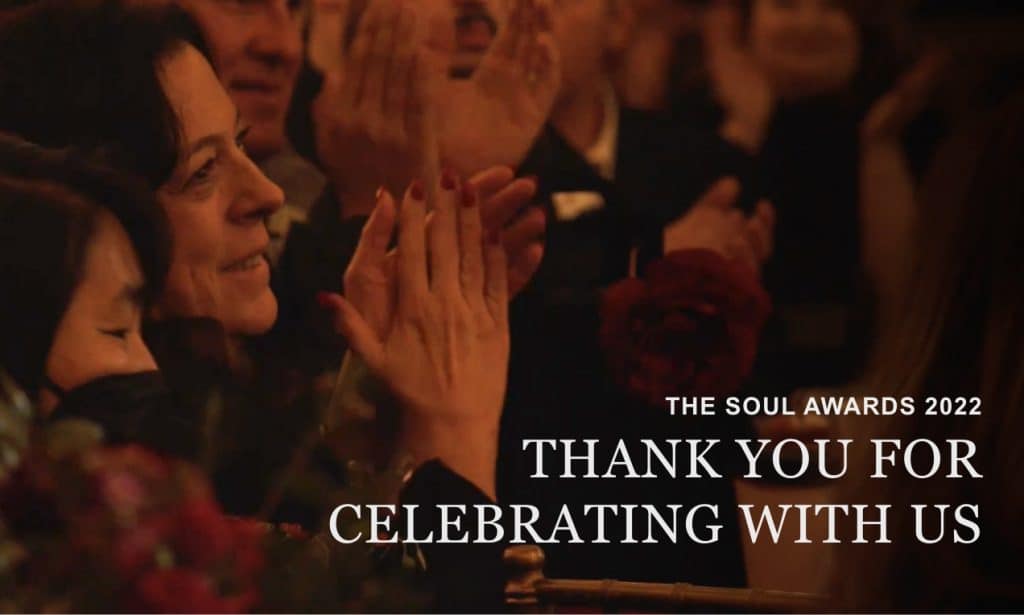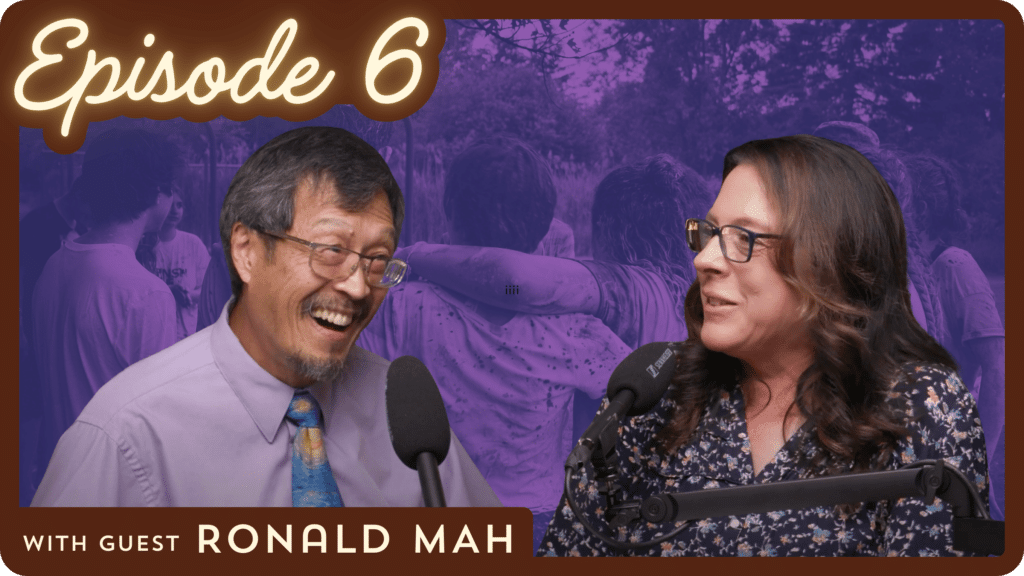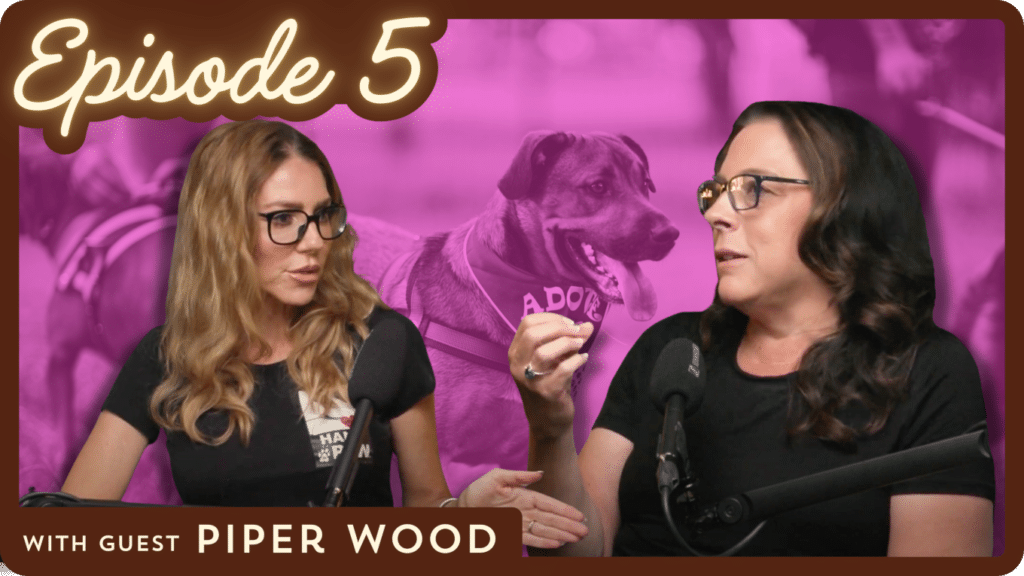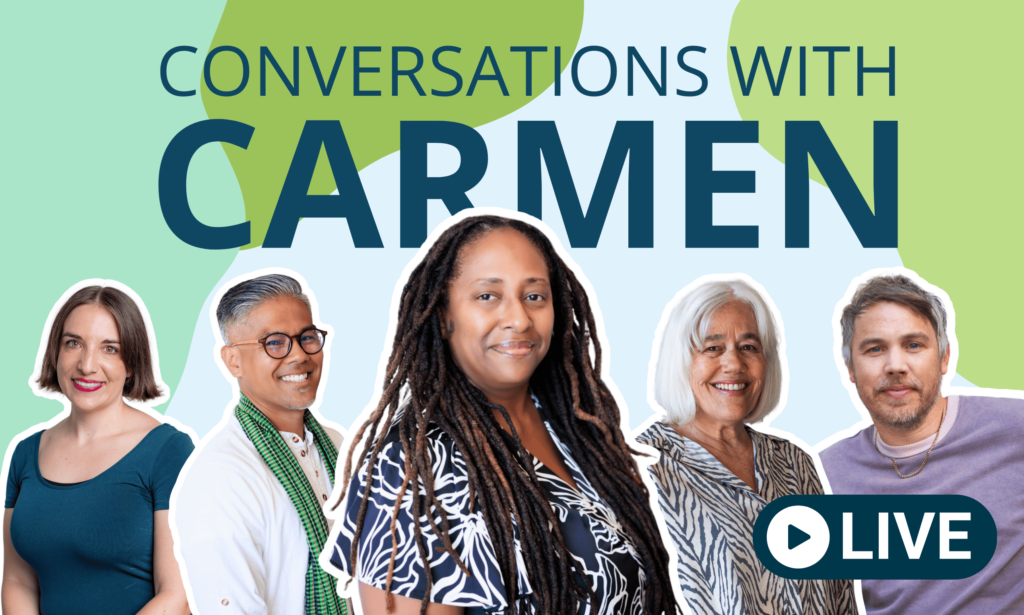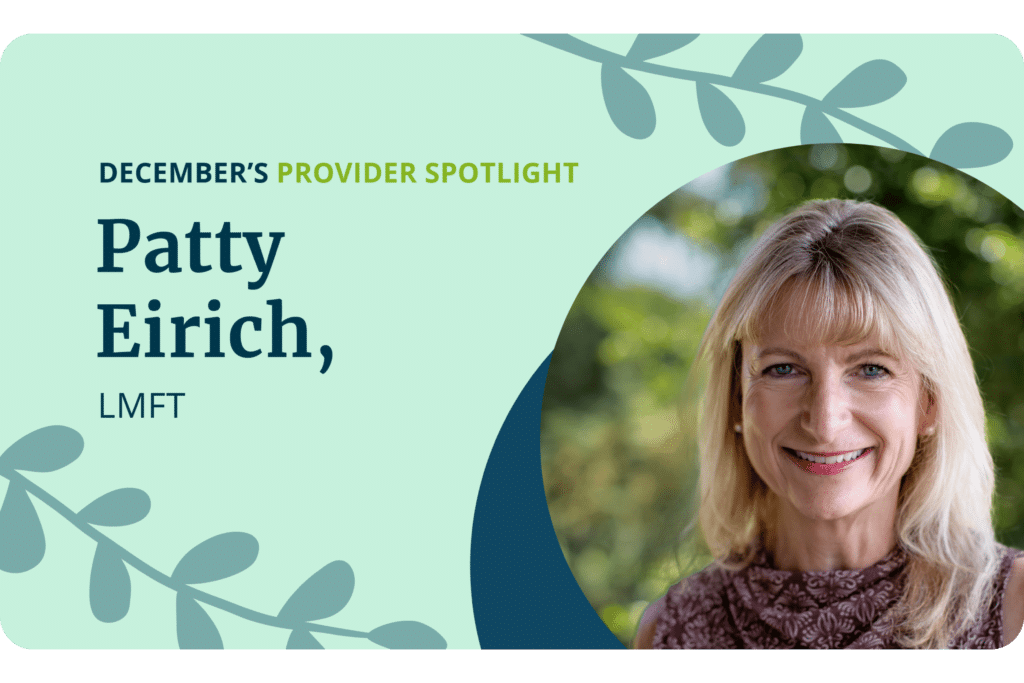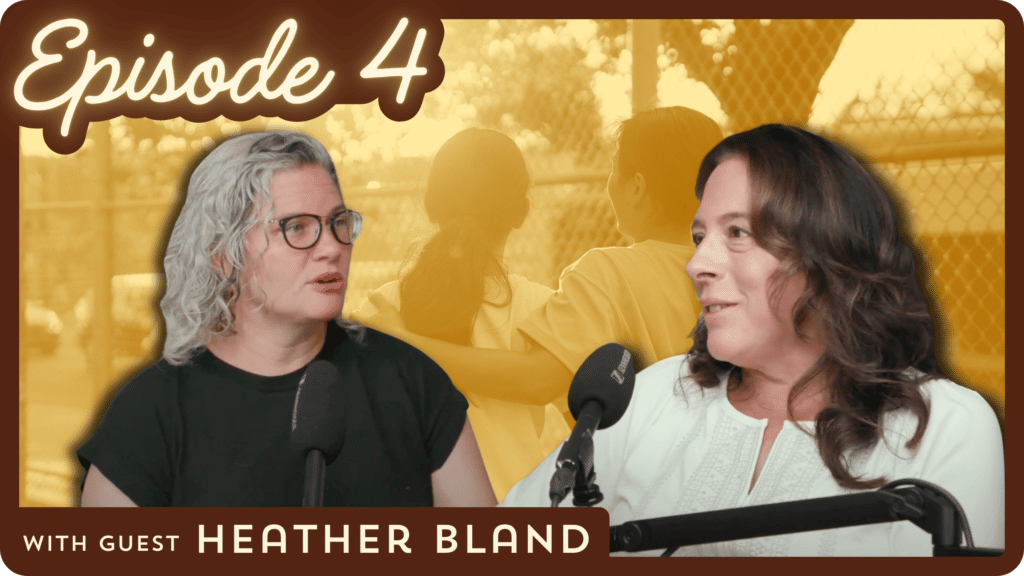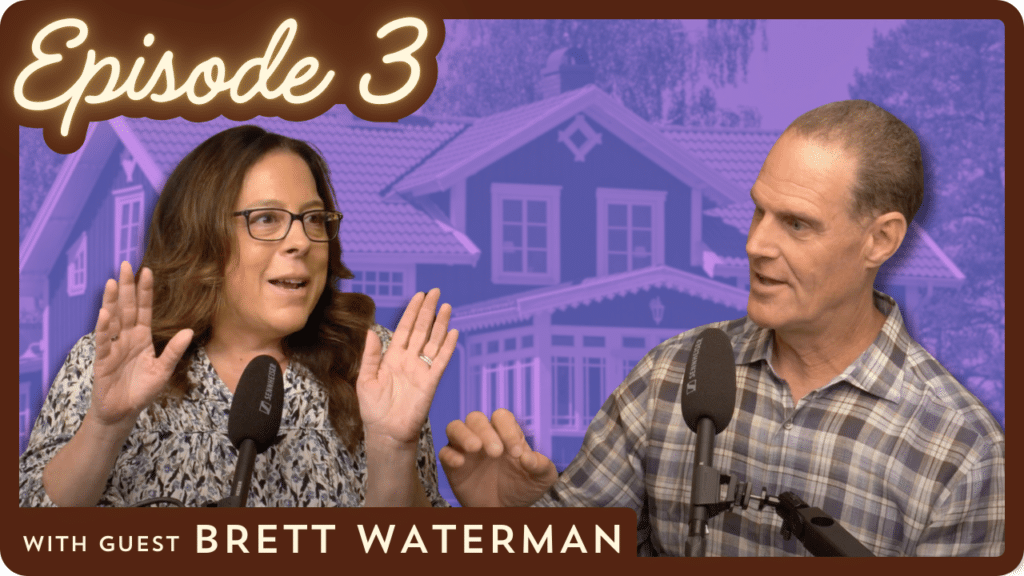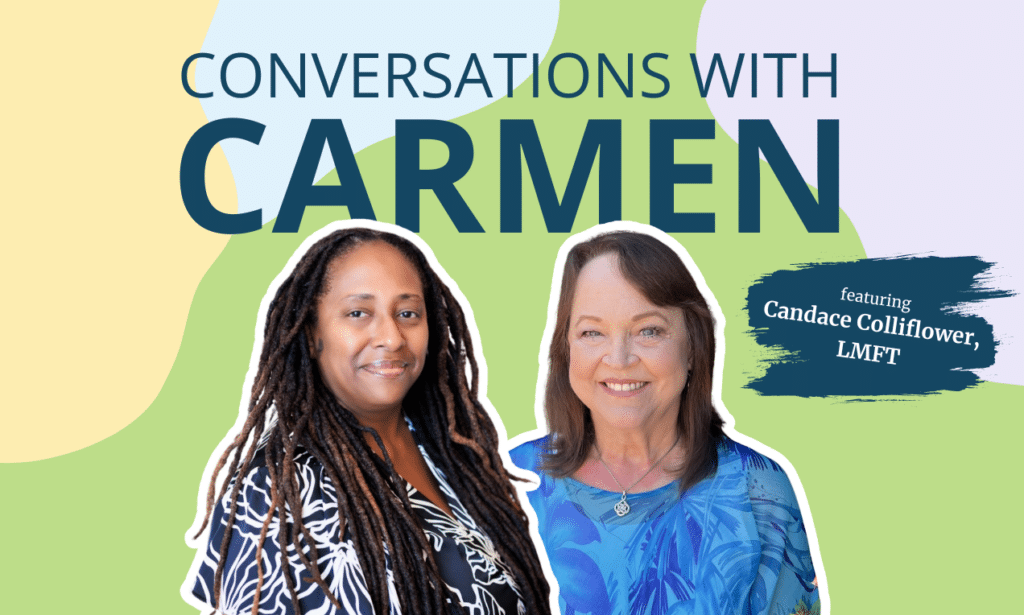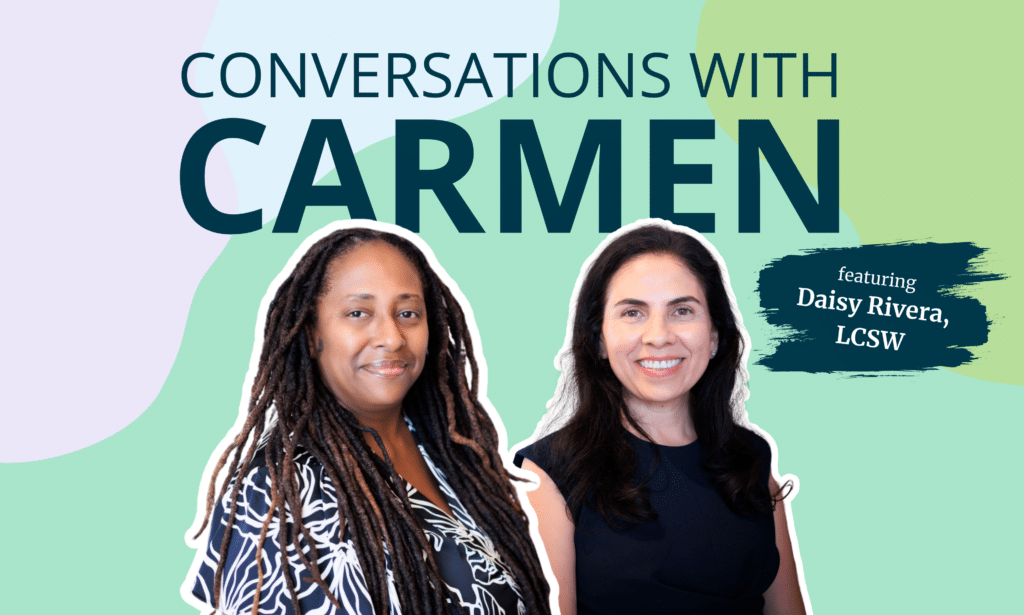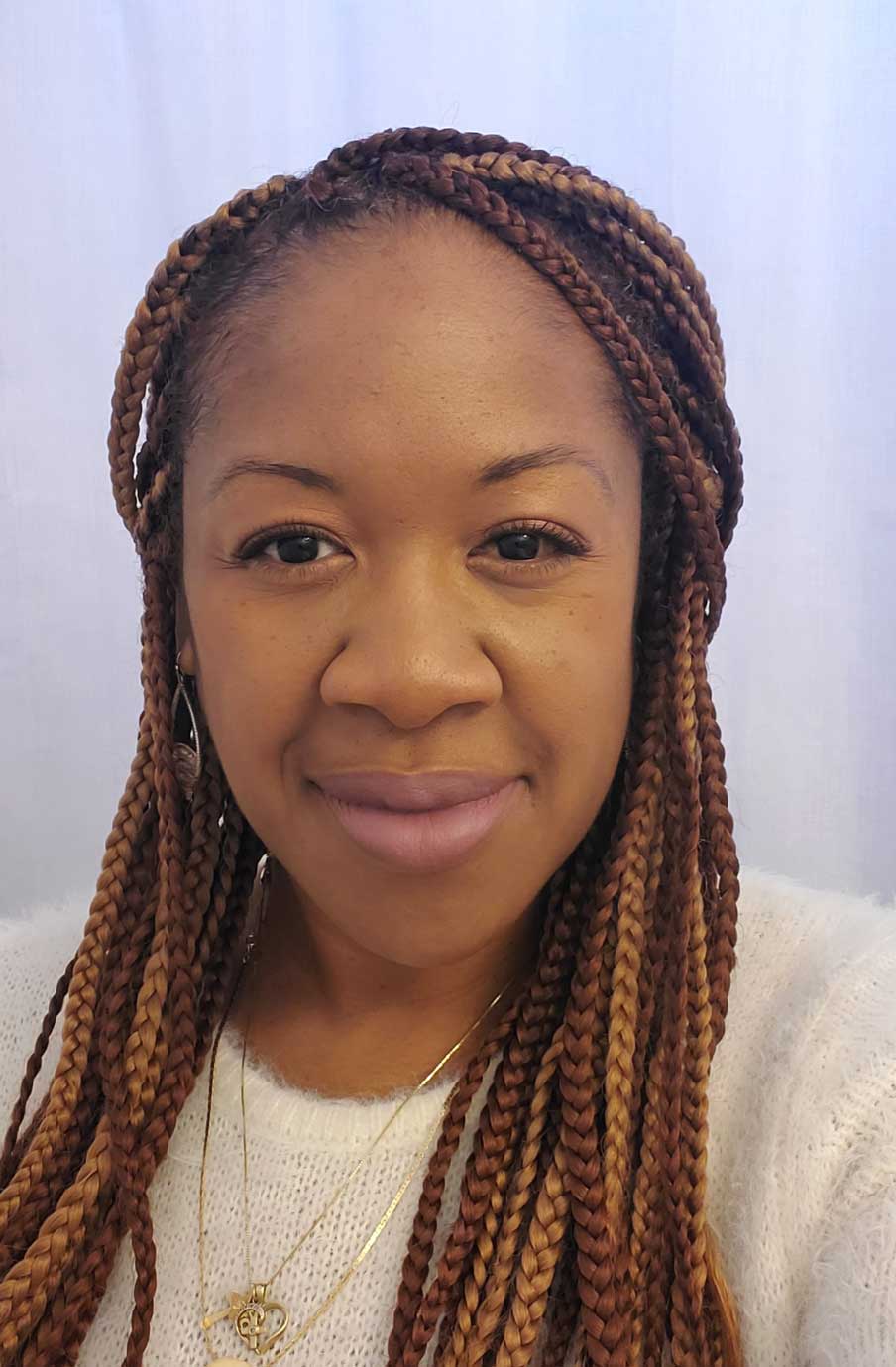
Every month we highlight a provider as our Provider Spotlight. This month’s Provider Spotlight was Lindsay Scales, LMFT. Each Provider Spotlight is interviewed by Dr. Carmen Majied for a segment called Conversations with Carmen.
In this segment, Carmen and Lindsay discuss Lindsay’s journey through life and how she arrived at Private Practice. Watch the video and read the full interview to hear more from Lindsay about her practice and how she has achieved her goals.
Are you a native Californian? Where did you grow up? Where would you say your fondest childhood memories took place?
Inglewood, California. I grew up in Inglewood, Fullerton, Victorville, West Memphis, AR. My fondest childhood memories took place in Inglewood and time with my Grandmother in the South.
You shared that prior to declaring a Psychology major, your intention was to pursue a Business degree. You also shared that it was a moment of realization (“holding space for people is my gift”) that provided you with the interest and momentum needed to essentially pivot in another direction.
Can you elaborate on that season of your life?
During this season I was in my early twenties doing what we do at this age; celebrating my youth I’ll call it. There were things that were happening along the path that felt like rejection but of course now looking back it was all redirection. When you feel like plans are not working out as you hoped you feel deflated and wrong. You are in a state of resistance because we want what we want. Apparently, that was not the direction meant for me.
You shared that you have a fairly extensive history working with sexual offenders and victims of sexual abuse (children and adults).
What were some of the more notable takeaways from that work experience?
What were some common clinical themes that arose in treatment?
Did that experience grow you as a clinician? If so, how?
Notable takeaways from this particular work experience would be we all have a story and there are those of us that experience trauma and react in such a way where we empower ourselves by taking from others and those of us that do whatever we can, so others do not experience what we have. We do not seek power we seek protection. In its simplest form we are all human attempting to cope.
Common clinical themes that arose in treatment are intergenerational trauma, unhealthy attachments within the parent-child relationship, abuse (e.g., emotional, mental, neglect, sexual), substance abuse, control=power, religious undertones, and so forth. The theme that came up the least was recovery, coping, healing; a common thread I found was the majority of victims and abusers had any idea how to implement coping or healthy coping which doesn’t allow recovery and healing.
You definitely grow as a person, as a counselor, and as a clinician when you are in a conscious space of the unthinkable and your goal is to show up without judgement and as a witness of a person in totality. For example, the person before you is not only an abuser but is also the abused, neglected, the boy or girl that believes they have no value, etc. Your insight into humanity grows for sure. As a clinician you are learning how to engage in trauma informed care.
You mentioned that you worked with the HIV/AIDS population for nearly five years. You expressed that you thoroughly enjoyed working with your clients (many of whom “…were living but had lost the will to live.”)
Can you expand on that?
I enjoyed working with this population because working with a team of people having a common goal to show people their light. I worked with substance abuse counselors, housing, church officiants, pharmaceutical reps, nurses, doctors, and scientist working to find methods to demonstrate worthiness, esteem, healing, and a new way to live with understanding, excitement, joy, and community.
A significant portion of your previous clinical work with the HIV/AIDS population was focused on assisting them with recapturing the perspective that their lives hold value and purpose.
What was that experience like for you?
This was remarkable as you are a witness to the building of a new community, identifying worthiness that’s similar to watching a flower bloom. The work we were doing was not so much about HIV/AIDS and more so about you are worthy and not only that but beautiful.
You shared that you spent a good portion of your time traveling to and residing in Georgia as well as spending summers in Arkansas.
How would you say those experiences impacted your growth and development as a person?
When you experience different environments, it expands your mind to the possibilities in which people are diverse and you learn to appreciate our differences and similarities. It also allows you to experience different depths of who you could become. I would say I have absorbed the best of both worlds living a southern and southern California lifestyle. Also being raised by the elders of your community is the absolutely greatest education one could receive.
You expressed “the purpose of my life is to pour into others’ lives”. What does this mean to you? How do you go about embodying that with mindful intention? How do consistency, action and alignment intersect for you?
To pour into others’ lives means to demonstrate how to hold your own cup and learn to fill it so it overflows. I embody this by practicing introspection and considering my relation to self and with others. These three are like a tripod. You need all three in order to uphold who you believe yourself to be. Consistency=Practice, Action=Movement, Alignment=Genuineness.
After obtaining your masters degree you took a step back from the mental health field. During your hiatus, you were employed as a nanny, lawn care associate, hospital equipment associate as well as a car driving services employee.
What did working in those professional capacities reveal to you about YOU?
I’m a therapist and there’s no escaping it, there is something about me that allows people to open up and be vulnerable, and I apparently am a natural caretaker; I took care of children, ground and earth, family and their businesses, and safely transporting people. I’m almost like a Shepard caring for the flock that come my way 😃
You stated that while working in the above-mentioned roles, you had many “pivot moments” which served to reinforce that mental health was your “calling”.
Can you share what some of those moments consisted of?
People sharing vulnerabilities.
You worked at Tri-City Mental Health subsequent to moving back to California (from Georgia). What was your role at Tri-City? What clinical populations did you treat?
Clinician working with Adults considered high level of care (e.g., Medi-Cal, Moderate to Severe Dx).
You shared that you maintained a client caseload in another private practice space before connecting with Soultenders in 2019.
How would you say that initial private practice experience informed your Soultenders journey?
It’s possible to work in private practice and feel competent in what you do, achieving professional goals, and to provide for yourself financially.
What suggestions and/or feedback can you offer other mental health professionals who are contemplating endeavoring into private practice?
What did you garner along the way (about being a practice owner) that you wish you had known earlier on?
If you feel like you have paid your dues, explored the many realms of this profession, and have come to a place in your journey where you have found your strengths, know your weaknesses, and have a sense of internal faith in self and ability to be and become the clinician you envision come on over. Crawl, walk, run through the fear, worry, and uneasiness what may happen and go for it!
I actually appreciate the road map I’ve taken and don’t believe in wishes. I wouldn’t do it differently.
As a self-described general practitioner, you acknowledge one of your strengths as being able to “…meet clients where they are”.
What does this process of working/connecting with your clients look and sound like?
Are there specific client populations that you prefer to focus on in your practice?
Again, it’s showing up with warmth, openness, no judgement, but knowing I am in a space with someone’s child, and I am going to be mindful, aware, and conscious of the delicate flower in front of me. By normalizing, practicing unconditional positive regard, and maybe even a sense of humor if an opportunity arises. The population I prefer to focus on would be the people that are ready and willing to do.
Do you have any professional ‘bucket list’ goals or aspirations?
I want to dedicate more professional time to the care and nurturing of clinicians. My aspiration would be to create private spaces within unique places for clinicians to rest, resuscitate, and rejuvenate building esteem and confidence while addressing our needs that tend to be forgotten.
What are your interests/hobbies? How do you like to spend your leisure/self-care time?
Travel, photography, reading, and writing; playing!
Is there anything else that you would like us to know about you, Lindsay?
I am one person, but I am one that genuinely cares for you and hopes you fall in love with yourself and the life you’ll create.

